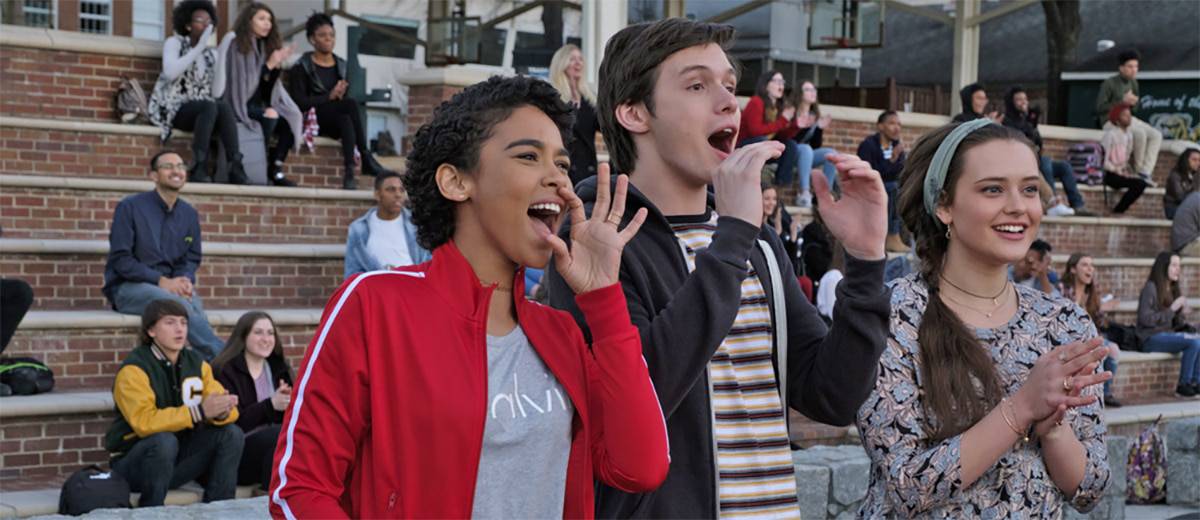
This time the filmmaker is working with a bisexual protagonist.
Greg Berlanti has been championing positive LGBTQ stories in the film and television industry for two decades. His first feature, The Broken Hearts Club: A Romantic Comedy, presents an optimistic look at the lives of a group of gay friends dealing with life and love. Fast forward 18 years later and Berlanti’s work on Love, Simon, the John Huges-esque teen film about a gay high schooler struggling with his coming-out narrative, is his current claim to fame, and for good reason.
Love, Simon is a breakthrough mainstream movie for the LGBTQ community because it is sweet, funny and life-affirming. But Berlanti isn’t stopping there. He is still finding new queer stories for the masses and is dedicated to bringing even more diversity to LGBTQ representations to film and television. Variety reports that Berlanti has optioned the rights to Mackenzi Lee’s historical young adult novel “The Gentleman’s Guide to Vice and Virtue” — particularly notable for featuring a bisexual protagonist — for Warner Bros. TV.
Set in the 1700s, “The Gentleman’s Guide” chronicles the adventures of a young British lord named Monty who engages in multitudes of debaucherous behavior despite the efforts of his father and various prestigious boarding schools to curb his vices. Upon receiving an ultimatum to settle down and run the family estate, Monty embarks on the Grand Tour of Europe with his sister Felicity and his best friend Percy — whom he is in love with. However, what was supposed to be an exciting last hurrah winds up becoming a “harrowing manhunt.”
Readers will then learn some confronting truths about these characters as they deal with the fallout of their Grand Tour, but “The Gentleman’s Guide” still makes for a fun romp of an action-adventure quest. The book keeps audiences on their toes with feisty characters and plenty of hilarity. Its bisexual protagonist as well as other characters of varying sexual identities and races — for instance, Percy is a gay biracial man with epilepsy — are vital to the narrative too, with Lee intentionally depicting them in a celebratory fashion.
In an interview with Publishers Weekly, Lee specified her desire to write a story that would be resonant in its commitment to happiness and normalcy for her queer characters. She cites a lack of diverse portrayals in historical fiction more generally as the impetus for her decision:
“I knew from the start that I wanted a queer romance that ends happily, with both people better because of it. I wanted it to have the same happy ending that contemporary romances so often get, not just coded gay characters in the background or a doomed gay romance. Most gay historical romances have a bittersweet edge, but I wanted to write a happy romance without reservations, because happily-ever-afters for queer characters haven’t quite reached historical fiction yet. It’s important for queer people today to see that we have existed forever and we have found ways, even in places that seem to reject us, to have fulfilled romantic and sexual lives with those we love.”
Lee’s mission statement with “The Gentleman’s Guide” is admirable on its own, and what makes the novel stand out is the fact that its characters aren’t immune to racism, ableism, or homophobia. The book doesn’t turn a blind eye to those realities but still manages to allow Monty, Percy, and Felicity to live beyond them, becoming fully-formed individuals who learn and grow. “The Gentleman’s Guide” breaks down assumptions of all kinds of marginalized identities within a historical context by maintaining an upbeat tone amidst potential adversary.
As a result, an adaptation of the book would gladly mirror Berlanti’s venture with Love, Simon, despite the discrepancies in the time periods. But whether the setting is the 18th century or present day, I wouldn’t ever say no to more happy LGBTQ stories. Furthermore, a TV version of “The Gentleman’s Guide” would specifically make a positive impact on portrayals of bisexuality — especially bisexual men — given the ease at which it has been erased or misinterpreted onscreen for the longest time.
The search is now on for a Gentleman’s Guide showrunner before the series gets shopped around to networks. Berlanti’s upcoming projects include the Lifetime series You and Archie Comics adaptation based on a reimagined Sabrina the Teenage Witch, along with his existing responsibilities across various DCTV productions.
Related Topics: LGBTQ

